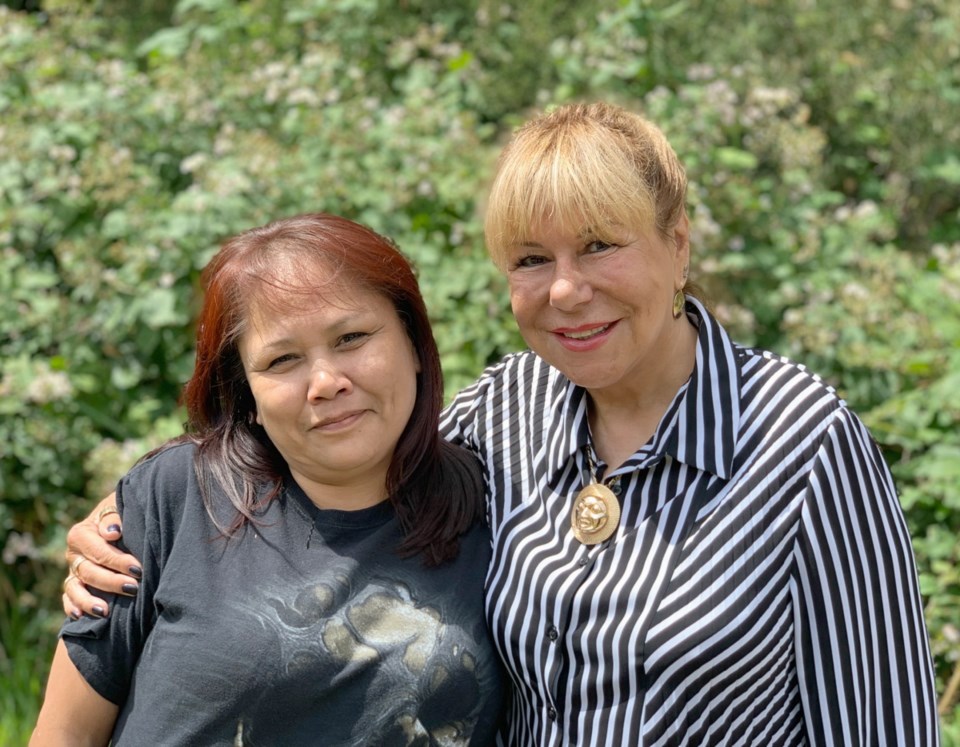There are many misconceptions when it comes to First Nations. So often people outside the communities are so quick to judge or question why things are the way they are. It’s easier to judge people than to take the time to understand the situations they are in.
Three years ago, Gabrielle Warren, housing manager and lands registry clerk at Beecher Bay First Nation, saw a challenge in her community and stepped up to work toward a solution.
“I saw a need with the housing department, and I wanted to make a difference,” Warren said. “I didn’t have any experience, but I wanted to be part of the solution.”
One thing I have noticed in First Nations is a desire for community members to give back to their communities and a willingness to learn the skills in order to do so. In urban centres, I’ve seen plenty of people criticize the system but have no desire to roll up their sleeves.
I have such respect for people like Warren who know real changes are made by people who care.
One of the first steps Warren took was taking a course hosted by Linda Ross Property Management, geared toward training property managers working in First Nations communities. Linda Ross has been working in Indigenous housing both on and off-reserve for decades.
Several years ago, Ross was instrumental in founding the Ready to Rent program here in Greater Victoria. It has since spread its roots across Canada. The program educates urban renters on their legal rights and their financial, maintenance and communications responsibilities. I’ve partnered with Ready to Rent through my work, and it’s a fantastic way to ensure everyone is on the same page when it comes to renting.
Potential tenants can use a Ready to Rent certificate to demonstrate to landlords that they are capable of being great tenants, giving them a leg-up in this tight rental market.
Ross took the roots of the program and then restructured it for First Nations housing departments in a series called Gimme Shelter. Warren first took the course for property managers and then she brought the program for tenants to Beecher Bay.
“Policies of Nations are very different than the policies that someone would find in town,” Ross said, explaining the importance of teaching what to expect when living in their First Nation communities versus living in town.
“It’s really helpful to explain what everyone’s responsibilities are. It helps people understand the policies that we need to follow,” Warren said.
The courses are structured through an Indigenous lens and are based in Indigenous teachings and sensitivities. The courses are taught differently from a standard course to ensure issues with schools and residential schools are not triggered. When it comes to the budgeting components, the course covers cultural events and funerals, where in First Nations communities, members are asked and expected to help contribute to assist in covering costs.
Courses such as this are important because there are cultural nuances that many people are unaware of. There is no one-size-fits-all answer to anything, and First Nations communities are significantly different from mainstream society.
In Indigenous communities, there are generally a couple of large families living in the Nation. First Nations managers, like Warren, have the added challenge of enforcing rules, approving requests and making tough calls. In any job it would be difficult, but Warren has the added challenge of most likely being related to, or close friends, with the people they are working with.
"I am not the bad guy. I let them know that I am trying to be part of the solution,” Warren said.
This is significantly different from being a property manager in a city with tenants that you’ve never met before. Imagine having to tell your aunt she needs to pay her rent or face eviction, or telling a cousin or sibling that there is no housing available for them.
“There is also the challenge of my housing department dealing with things that end up in the social development program or fall under the health department,” said Warren.
Housing on-reserve is generally funded through the federal government and the limited funds available are dispersed between all Indigenous communities.
“I feel like all the money is thrown into a pit and the strongest Nations win,” said Warren.
Housing and funding are always an issue no matter what demographic is being served. There is never enough money to go around. Warren is responsible for making tough choices about selecting which repair requests are crucial and which ones will need to wait.
“It’s a really tough job when you are a community member,” Ross said. “Gabrielle is a force.”
Ross’s courses for on-reserve property management and tenants’ rights and responsibilities have been held in 25 First Nations and have graduated more than 300 students.
Charla Huber is the director of communications and Indigenous relations for M’akola Housing Society and M’akola Development Services.



